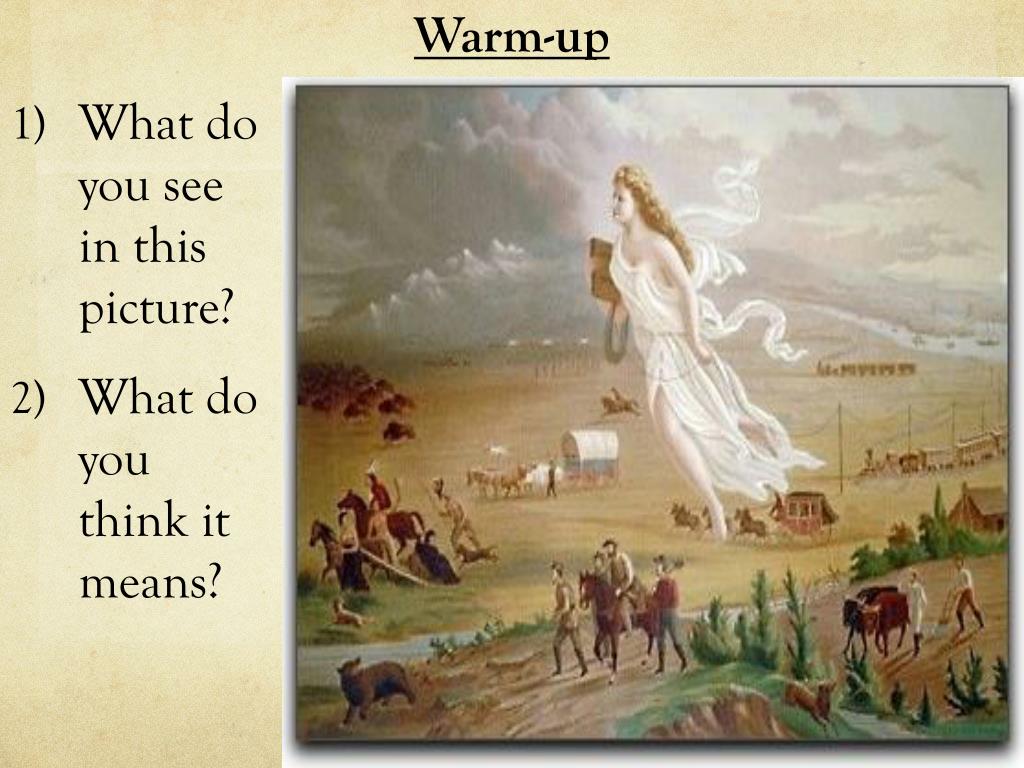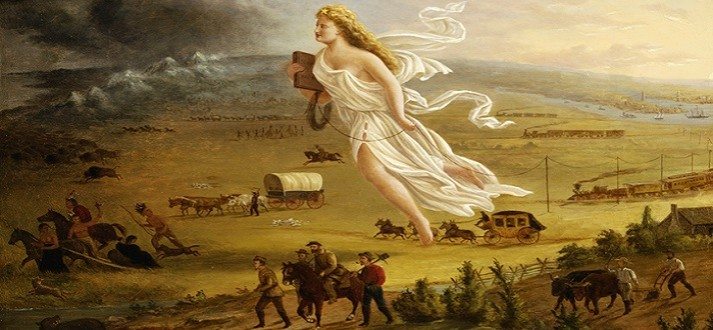

Their forefathers had fought for powerful truths and principles and the new generation had to spread those ideas. This included the triumph of the American Revolution, which secured liberty and equality and established a democratic republic. In so doing, they saw themselves as part of the inevitable march of history. They constructed a narrative of the past that traced expansion back to the colonies of Jamestown and Plymouth-some went even further back, pointing to European events. Americans pointed back to their ancestors and to the Founders for inspiration. Another factor in the push for expansion was history.

They saw taking new lands as their God-given right and often quoted scripture to support such notions, comparing themselves with the Hebrews who had taken the Promised Land in the Old Testament. One important factor was religion Americans were Christians and believed that God had a plan for their nation, a belief underscored by the Second Great Awakening that swept so much of the country. O’Sullivan’s article brought together the trends and impulses that helped forge the concept of Manifest Destiny. Manifest Destiny was the idea that the United States had a clear national purpose to spread across the continent of North America, carrying the ideas of liberty, equality, and democracy into new territory that would provide homes and livelihoods for its rapidly growing population. Although American expansionism had many negative consequences, the positive good that resulted far outweighed the costs of the United States not taking the western half of the continent.Īlthough later generations would disagree with much of what O’Sullivan wrote, in the context of the 1840s, he gave expression to what many Americans had long believed. In so doing, the Irish American editor pointed to God, to history, to geography, to race, to demographics, and to economics as being the sources for the impulse for the United States to expand into new territories.
MANIFEST DESTINY FREE
O’Sullivan wrote that it was “our manifest destiny to overspread the continent allotted by Providence for the free development of our yearly multiplying millions.” In his essay celebrating the annexation of Texas and calling for the taking of California, O’Sullivan coined the term that gave Manifest Destiny its name.


Note that the arguments in this essay are not the personal views of the scholars but are illustrative of larger historical debates. Then, complete the comparison questions that follow. Read the two arguments in response to the question, paying close attention to the supporting evidence and reasoning used for each. Was Manifest Destiny a natural outcome of American economic, political, and ideological trends supporting western expansion, or was it an example of American imperialism driven by land hunger, cultural superiority, and racism? Instructions Use this Point-Counterpoint alongside The Oregon Question: 54–40 or Fight? Decision Point to explore the arguments for the United States’ expansion west to the Pacific Ocean.James Fuller, University of Indianapolis (Claim B) Andrew Fisher, William & Mary


 0 kommentar(er)
0 kommentar(er)
